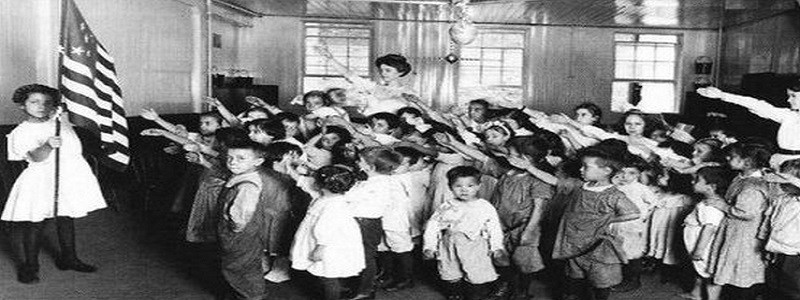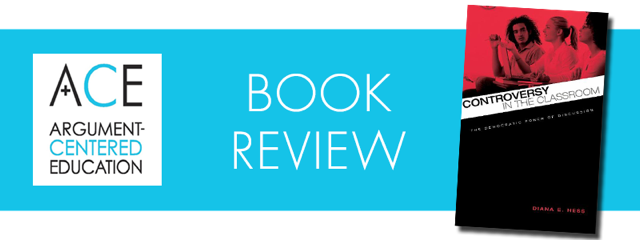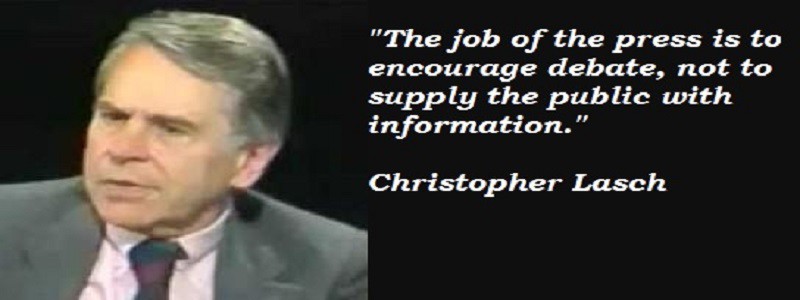Teaching the Debate About Patriotism (Pt. 1)
By Gerald Graff
My daughter, who goes to Stuyvesant High School only blocks from the former World Trade Center, thinks we should fly an American flag our our window. Definitely not, I say” The flag stands for jingoism, vengeance, and war. She tells me I’m wrong — the flag means standing together and honoring the dead and saying no to terrorism. In a way, we’re both right.
— Katha Pollitt, “Put Out No Flags,” The Nation, October 8, 2001
What should American students learn about patriotism? First and foremost, that the concept is profoundly controversial. How controverisal, in the wake of the terrorist attacks of September 11, 2001, is suggested above in the opening of an article by Katha Pollitt that appeared in The Nation in October of that year. The passage also suggests a way of teaching contested concepts like patriotism that I have championed for some time: Teach the debate itself about such concepts, present students with opposing arguments and ask them to form their own positions.
Controversy in the Classroom – A Compelling Introduction to a Pedagogy that Can Democratize 6th – 12th Grade Instruction
University of Wisconsin – Madison Dean of the School of Education Diana Hess is a national leader in argument pedagogy and civics education (and also an academic partner of Argument-Centered Education). Her first full-length publication, Controversy in the Classroom: The Democratic Power of Discussion (Routledge, 2009), helped make her reputation and forge her current trajectory of influence. In this review we’re going to investigate the close connections between the work’s pedagogical theories and 6th – 12th grade argument-centered instruction.
Professor Hess extols the civic and democratizing importance of structuring argument about controversial issues in middle school and high school. She presents a bevy of evidence for this conviction; one example is the 2003 report from the Carnegie Corporation titled “Civic Mission of the Schools,” which she quotes:
Studies that ask young people whether they had opportunities to discuss current issues in a classroom setting have consistently found that those who did participate in such discussions have a greater interest in politics, improved critical thinking and communication skills, more civic knowledge, and more interest in discussing public affairs out of school. Compared to other students, they also are more likely to say that they will vote and volunteer as adults (28).
Controversy in the Classroom provides an especially vivid quote from a teacher involved in one of the work’s referenced studies, developing the idea that arguing in discussion and taking part in classroom debate is essential for airing out differing ideas and views, and is in some ways a prerequisite for students coming to their own independent thinking on important issues that we teach in our classrooms.
“But My Students Don’t Know Enough Yet to Engage in Debates!” Christopher Lasch on the Argument vs. Information Confusion
By Gerald Graff
“Hey, I’m all for teaching argument and debate,” my colleague assured me after viewing the ACE website. “But students have to know something about a topic before they can usefully debate it, and students these days just don’t.”
It’s one of the most familiar objections to organizing school and college curricula around debatable issues: until students know enough of the relevant information—as today’s students rarely do—they aren’t ready to debate such issues. And it’s certainly true up to a point: it’s hard to enter a debate about whether income inequality is a problem or not if you lack information about what’s been happening to income distribution over the last generation.
What this way of thinking ignores, however, is its circularity: yes, students need some economic knowledge to intelligibly debate the pros and cons of income inequality, but unless they are exposed to the debate they may not see the point of acquiring that data in the first place.
The Argument-Based Socratic Seminar
Named for Socrates (469 – 399 B.C.E.), one of the founders of Western philosophy, the Socratic Seminar is a formalized classroom discussion activity that emphasizes reflective thinking about big questions and the use of evidence to support responses. According to Elfie Israel, in Inquiry and the Literary Text (NCTE, 2002):
The Socratic seminar is a formal discussion, based on a text, in which the leader asks open-ended questions. Within the context of the discussion, students listen closely to the comments of others, thinking critically for themselves, and articulate their own thoughts and their responses to the thoughts of others. They learn to work cooperatively and to question intelligently and civilly.
An Unlikely Collaboration: College Forensics and Classroom Accounting
Northern Illinois University’s College of Business and Department of Communication were brought together several years ago over the common goal of developing student’s critical thinking skills. The connection nurtured a mutually beneficial relationship for both NIU departments, and all of the educators and students taking part. My involvement in the collaboration has grown throughout its development. It began with providing example debates as a senior undergraduate member of NIU’S debate team; then I provided more extensive support as a graduate intern; and now I am integrally involved with the project as its professional consultant.






